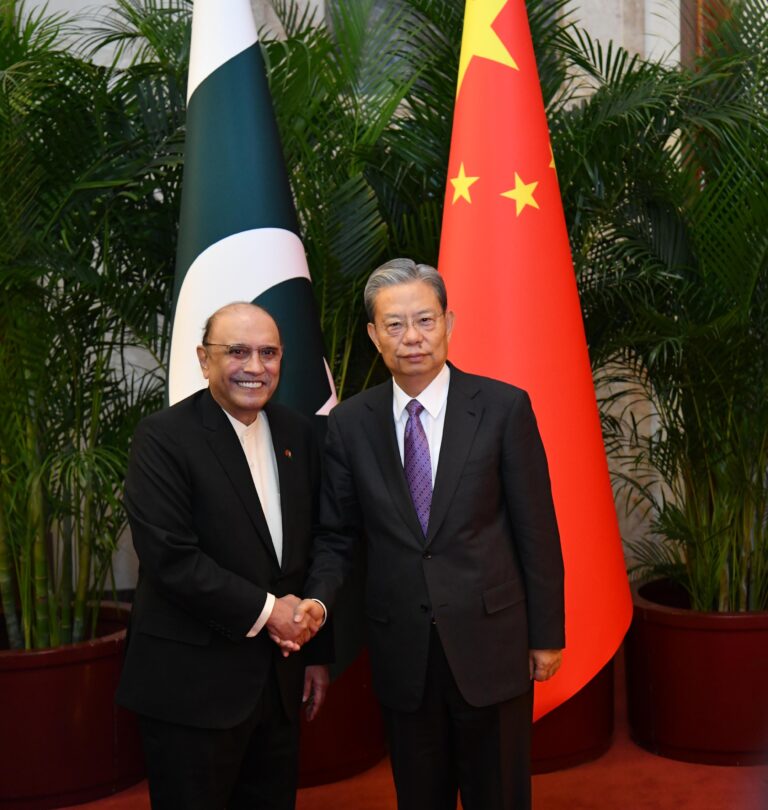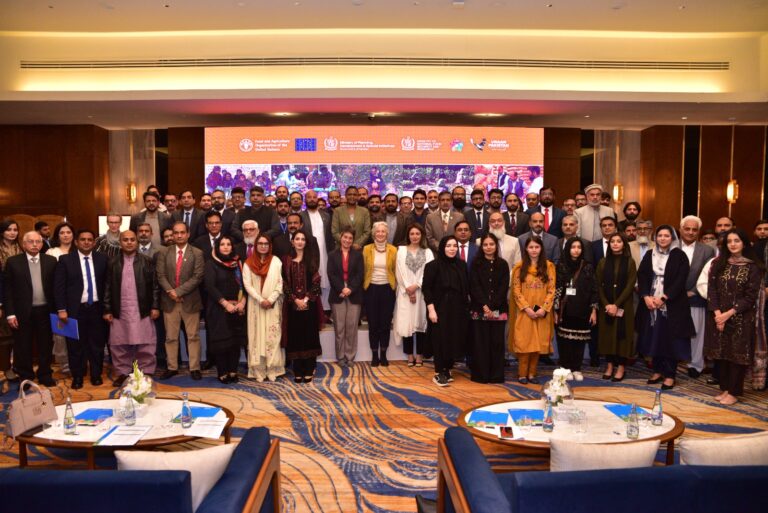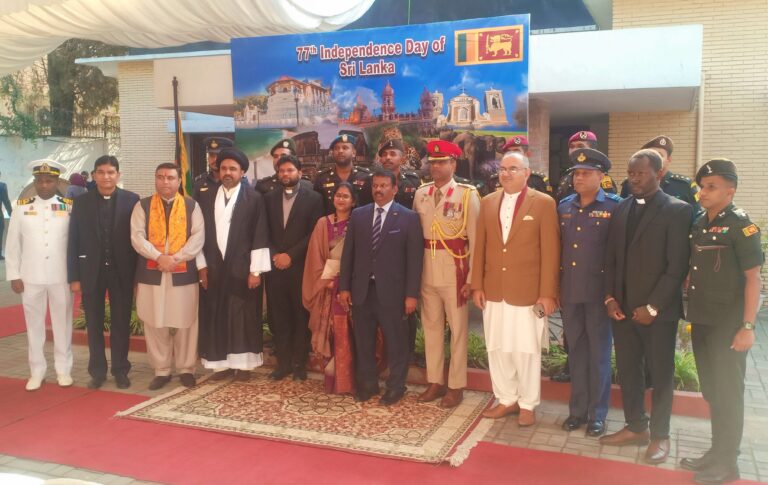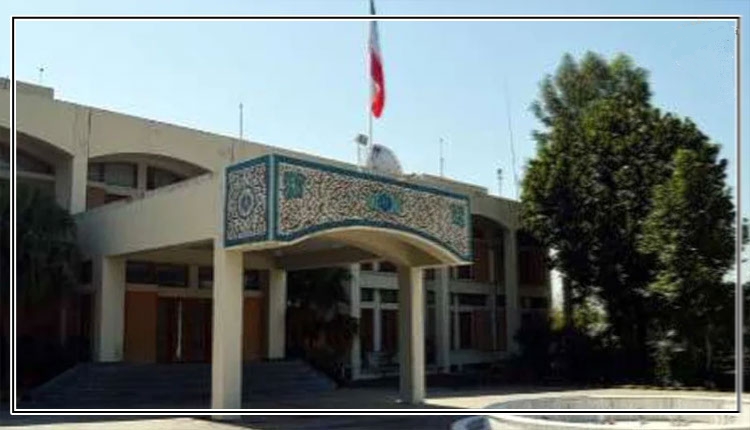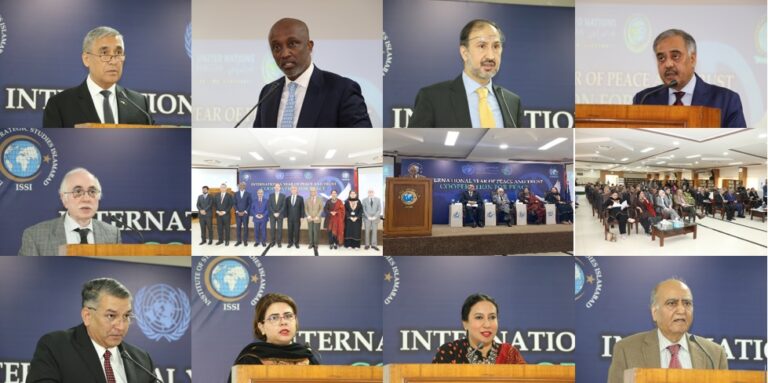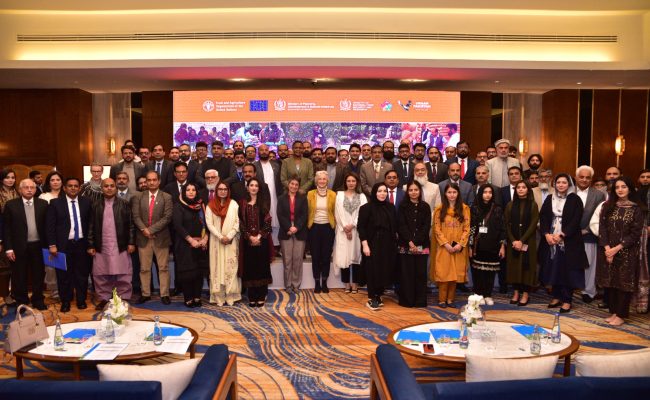By The World Ambassador
TWA
______
Pakistan has taken a significant step toward strengthening its food safety and quality regulatory regime with the launch of a comprehensive food control system assessment. The initiative, led by the Food and Agriculture Organization (FAO) in collaboration with the Minitry of Planning, Development and Special Initiatives, Government of Pakistan and co-leadership of Ministry of National Food Security and Research, aims to enhance governance, strategic planning, and compliance with international food safety standards.
Federal Minister for Planning, Development and Special Initiatives, Ahsan Iqbal, expressed his full support for the initiative in a video message, emphasizing the importance of food safety for both public health and economic growth.
“The issue of food safety and regulation has gained global significance. Pakistan faces multiple food-related challenges, including malnutrition and foodborne diseases, particularly among children. We must assign the highest priority to food safety in Pakistan—not just for the well-being of our people but also for achieving our economic growth targets,” he stated.
He highlighted that under the ‘Uraan Pakistan’ initiative, exports will serve as a primary driver of economic growth.
“Pakistan has immense potential in the agriculture sector. To fully realize this potential and maximize export revenues, we must align our food safety protocols with international standards. This requires a collaborative effort between government agencies, academia, and the private sector to identify regulatory gaps and implement a robust strategy,” he added.
FAO Representative in Pakistan underscored the critical role of food safety in public health and economic development, reaffirming FAO’s commitment to supporting Pakistan in strengthening its national food control system.
“This initiative marks the beginning of a systematic approach to modernizing Pakistan’s food safety governance. The FAO/WHO Food Control System Assessment Tool will evaluate the existing system across Punjab, Sindh, Balochistan, and Khyber Pakhtunkhwa to identify areas for improvement. The Government of Pakistan has co-signed this project, reinforcing its commitment to a science-based and internationally recognized food safety framework,” he said.
Pakistan’s request for this assessment signifies its dedication to aligning with international food safety regulations, including those set by the Codex Alimentarius and the World Trade Organization’s agreements on sanitary and phytosanitary measures (SPS) and technical barriers to trade (TBT).
The assessment process will involve key phases such as data gathering by national Competent Authorities, an international validation mission, and a strategic workshop to validate findings and agree on a roadmap for implementation.
“By strengthening its food control system, Pakistan is not only safeguarding public health but also enhancing its global trade prospects,” the FAO Representative added.
A technical presentation during the workshop highlighted that foodborne illnesses impact one in five people in Pakistan—twice the global average—resulting in an estimated productivity loss of $1.7 billion annually. Experts also emphasized the importance of adherence to Codex Alimentarius standards and the necessity of a science-based, transparent, and harmonized approach to food control.
Nadia Rahman, National Coordinator of Comprehensive Food Safety and Quality Regulatory Regime for Pakistan, emphasized to improve the national coordination mechanism to strengthen the food control system in Pakistan. Major General M Ayub Ahsan Bhatti, Director General Land Information Management System highlight the role of LIMS for quality in Pakistan’s Green Future through safe food and strong economy.
The FAO-led assessment will provide a set of recommendations and a strategic framework to guide future interventions, ensuring that Pakistan’s food safety system is effective, transparent, and aligned with global best practices.
The Government of Pakistan and FAO reaffirm their commitment to working closely with all stakeholders to enhance food safety, build consumer confidence, and open new opportunities for agricultural and food exports.
More than 120 participants from academia, relevant provincial and national government line departments, food and agriculture-related associations, researchers and others attended



